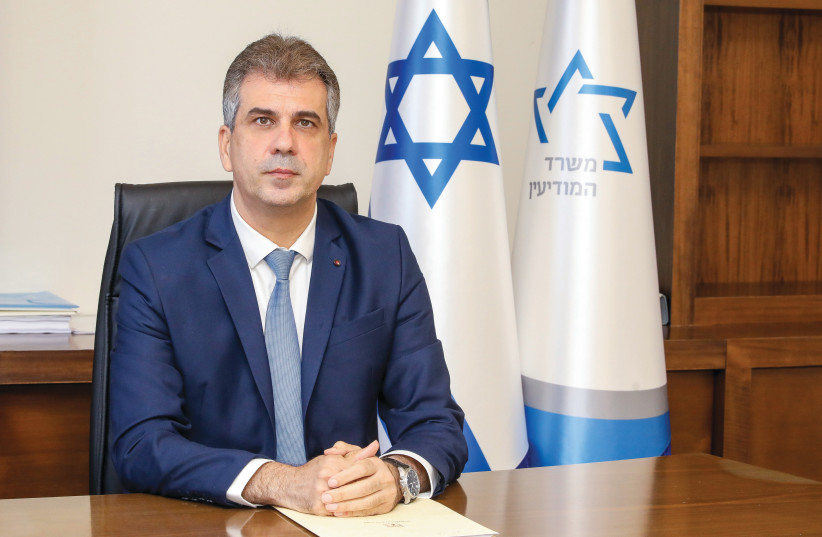Russian Foreign Minister Sergei Lavrov reached out the newly installed Foreign Minister Eli Cohen to discuss ways to deepen the relationship between the two countries, despite tensions due to Moscow's war with Ukraine.
"I have now finished a conversation with… Lavrov, who called to congratulate me on taking office."
Eli Cohen
Cohen published a meme of the two of them after the conversation, stating, "I have now finished a conversation with… Lavrov, who called to congratulate me on taking office.
"We discussed a series of bilateral and regional issues and the relations between the countries," Cohen wrote.
The two men spoke just one day after Cohen had received a call from United States Secretary of State Antony Blinken.

What is the new Israeli government's view on Russia?
Russia's Embassy in Israel stressed that Cohen and Lavrov had spoken in specific of improving economic and trade relations.
The conversation follows the congratulatory call between Russian President Vladimir Putin and newly inaugurated Prime Minister Benjamin Netanyahu late last week.
Netanyahu and Putin have long had a strong relationship and prior to leaving office in 2021, he had attempted to stay neutral with respect to Russia's invasion of Ukraine.
Netanyahu's successor Naftali Bennett had also been cautious about Russia and had attempted to mediate between Moscow and Kyiv.
There is speculation that Israel under Netanyahu was well poised to play a mediator role.
At issue, also for Israel has been Russia's presence on Israel's northern border.
Netanyahu's predecessor Yair Lapid was much more outspoken against Moscow.
Israel joined the United Nations in condemning Russia, has offered it humanitarian aid but to date has not ceded to Ukraine's request for military assistance.
In the last year, Russia has closed the offices of the Jewish Agency and Moscow's exiled Chief Rabbi Pinchas Goldschmidt has urged Russian Jews to leave to escape rising antisemitism.
Cohen's speech to the Foreign Ministry on Monday, in which he said that Israel should talk less about the Russia-Ukrainian war was interpreted to mean that he would move closer to Moscow and be less critical.
Republican Senator Lindsay Graham of South Carolina tweeted, that staying quiet about Russia's "criminal behavior does not age well."
Cohen's office said that the Foreign Minister had raised the issue of Russian Jewry as well as the large community of Israelis hailed from the former Soviet Union countries.
The Russian Foreign Ministry said Lavrov also briefed Cohen about the situation in Ukraine. It explained that the two men also spoke about Syria and the Israeli-Palestinian conflict.
